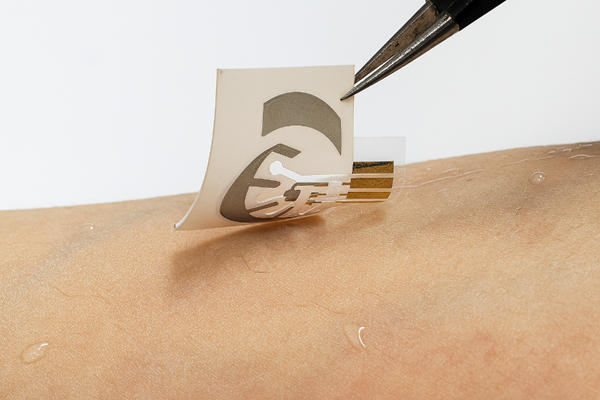
Wearable lithium sensor could help people with bipolar disorder track medication levels through sweat
On Jul. 18, 2025, researchers from the University of Southern California (USC) reported a wearable sensor could vastly improve treatment and drug safety for millions of patients who take lithium for bipolar disorder. The research appears in the journal Device, a new flagship publication from Cell Press, highlighting cutting-edge innovations in electrical engineering, materials science and bioengineering.
Lithium is a highly effective treatment for bipolar disorder, but the medication has a narrow therapeutic window — too high a dose can be toxic to patients, causing kidney damage, thyroid damage or even death, while too low a dose renders the treatment ineffective.
The dose of lithium varies between individuals based on body weight, diet and other physiological factors, and requires regular monitoring of lithium levels in the blood. Currently, this is done via laboratory-based blood draws, which can be time-consuming, inconvenient and painful. Personalized and easily accessible lithium monitoring would be a significant improvement.
“Our goal was to create an easy-to-use sensor that bypasses the need for blood draws entirely,” explained Yasser Khan, a USC Ming Hsieh Department of Electrical and Computer Engineering professor who leads the USC Khan Lab, and part of the USC Institute for Technology and Medical Systems (ITEMS), a joint initiative of the USC Viterbi School of Engineering and the Keck School of Medicine of USC focusing on innovative medical devices.
Khan’s team identified sweat as an ideal alternative to blood samples because sweat can be collected noninvasively and reflects lithium concentrations in real time. To simplify the process even further, the wearable includes a skin-safe, iontophoresis-based system to induce sweat without requiring physical exertion. In just minutes, the device collects data, which is transmitted directly to a smartphone app, allowing patients to track their lithium levels from the comfort of their own homes.
Behind this is a powerful innovation: the use of organic electrochemical transistors (OECTs) specifically designed for lithium detection. OECTs are electronic devices that respond to ionic signals in liquid, converting them into readable electronic data. Unlike conventional OECTs, which rely on complex fabrication steps and are not optimized for lithium, the sensor developed at USC features a fully printed OECT using a novel material formulation tailored to detect lithium ions specifically.
Sweat samples were collected using the wearable device, and lithium measurements were successfully matched against values derived from bulky commercial sensors. Participating patients responded positively, expressing relief at the prospect of monitoring their health without repeated hospital visits. Next, the team plans to develop more advanced wearable systems powered by artificial intelligence to automatically adjust lithium dosage and achieve optimal therapeutic benefits without causing lithium toxicity.
Tags:
Source: Device
Credit:
